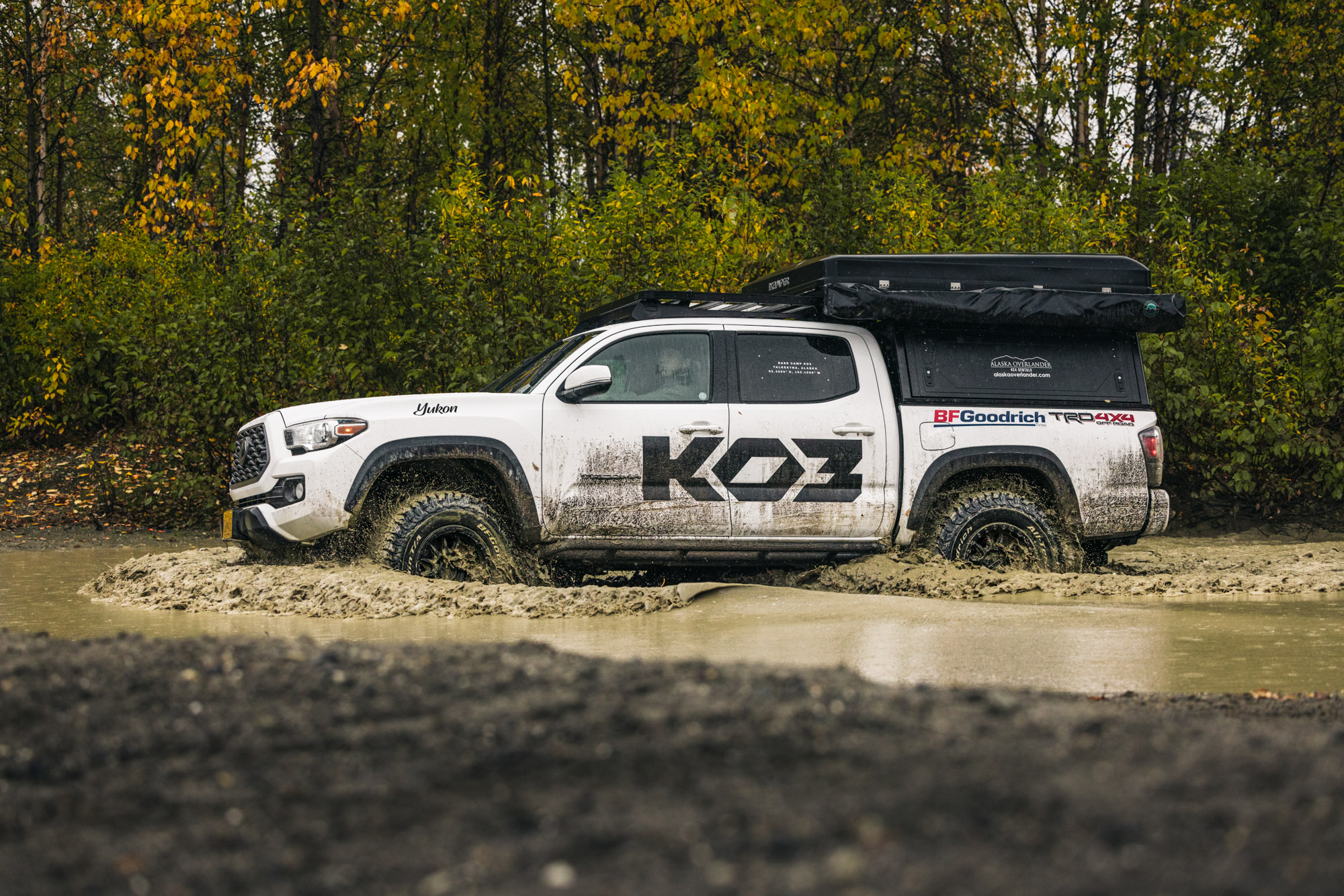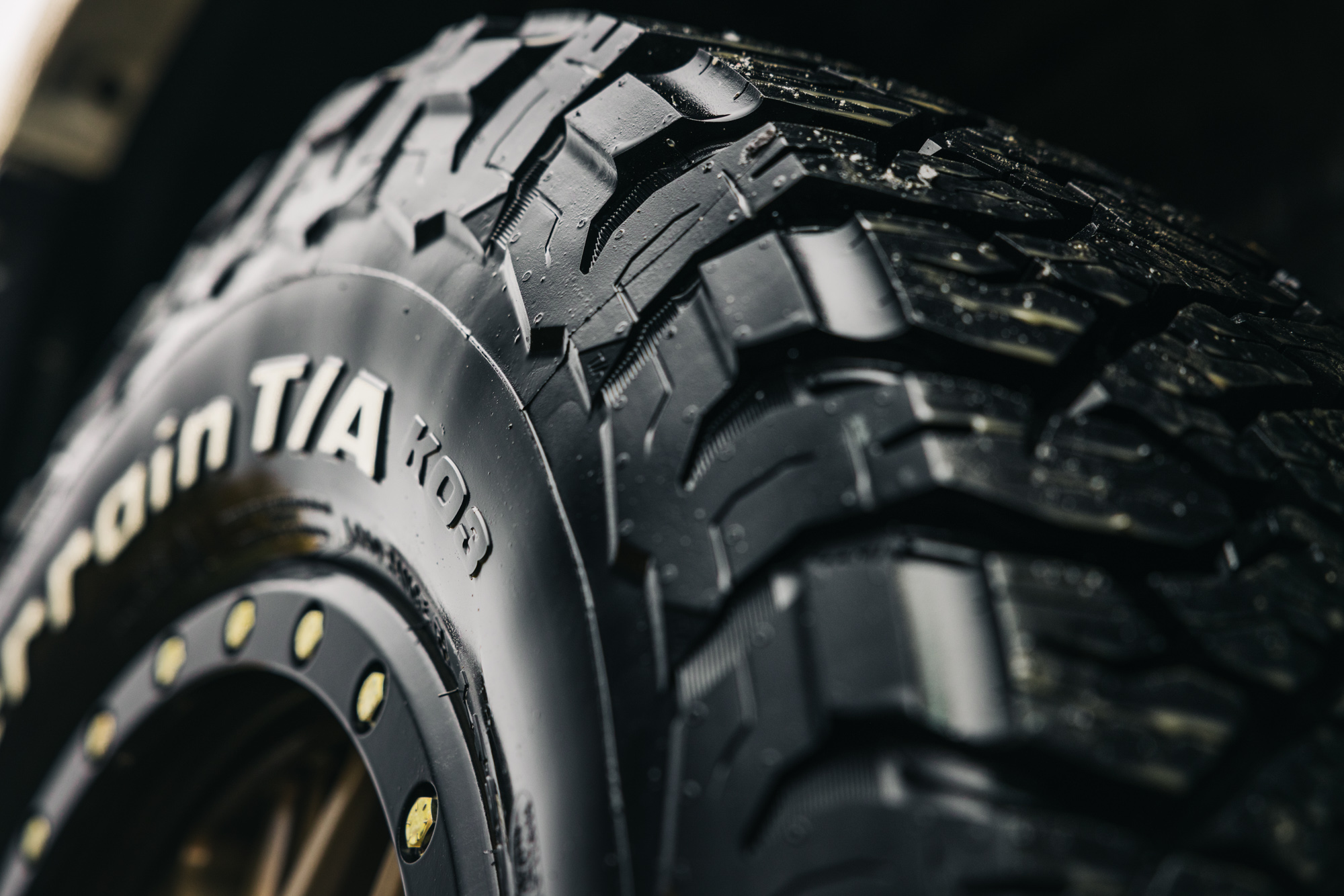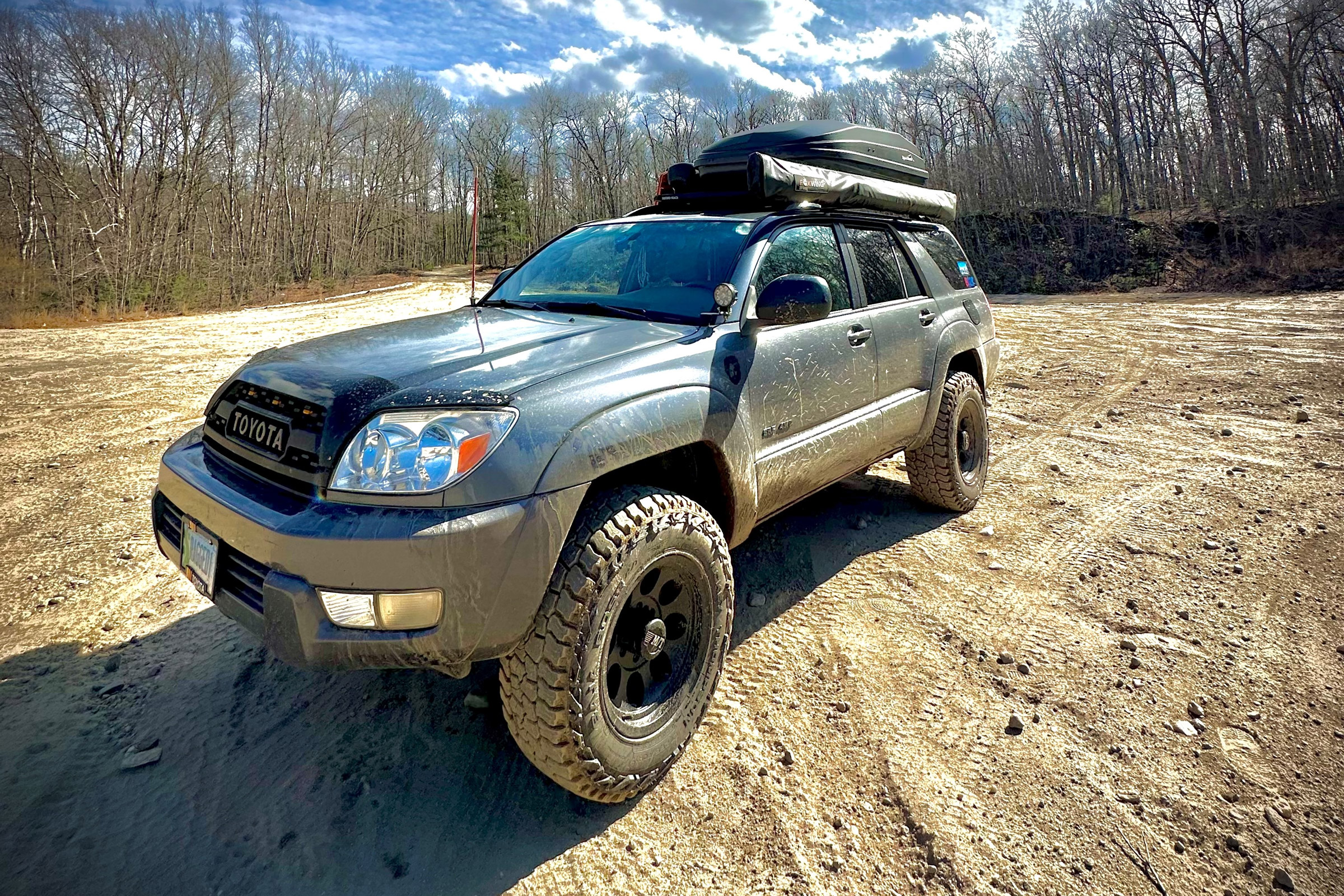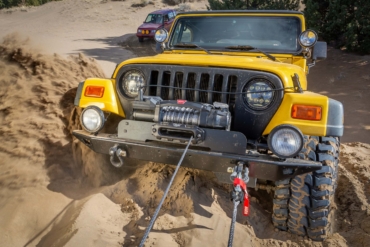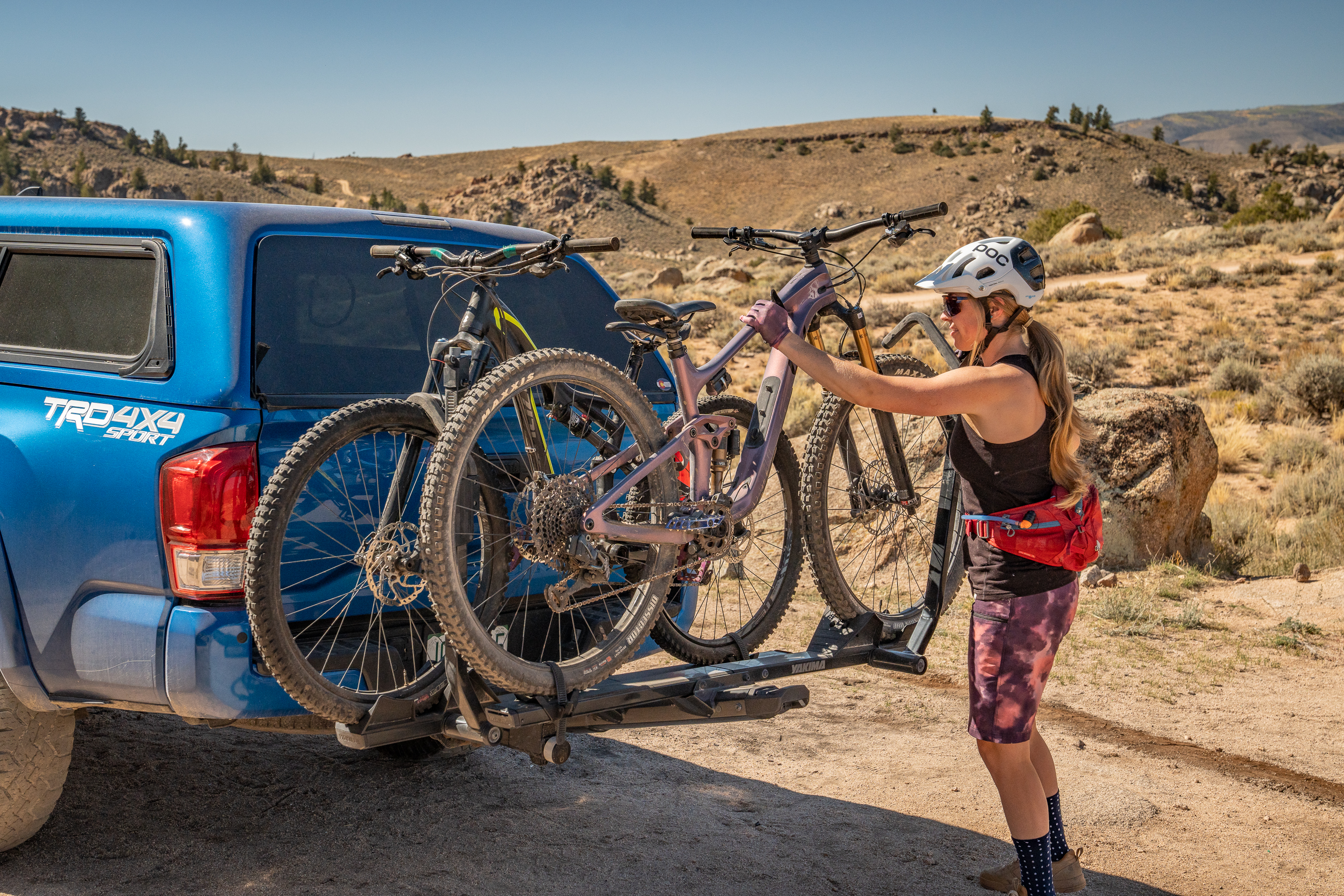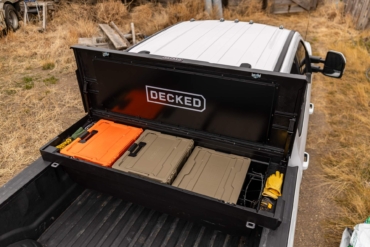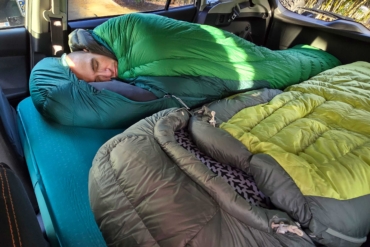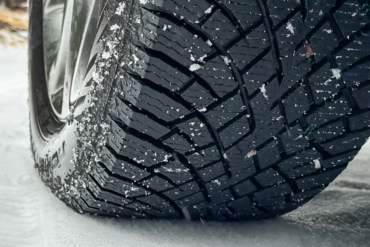It took 10 years for BFG to create a better all-terrain tire this time around. The outgoing KO2 AT is an iconic tire that is renowned for its all-around performance on and off-road, especially its durability in extreme terrain. BFG just released the All-Terrain T/A KO3 in May, and is still rolling out the full range of sizes.
Is this new all-terrain better than the icon it replaces?
BFG flew me all the way to Alaska to find out. As you might expect of Alaska in September, the weather was all over the map, the tourist season was coming to a close, and the wildlife was plentiful.
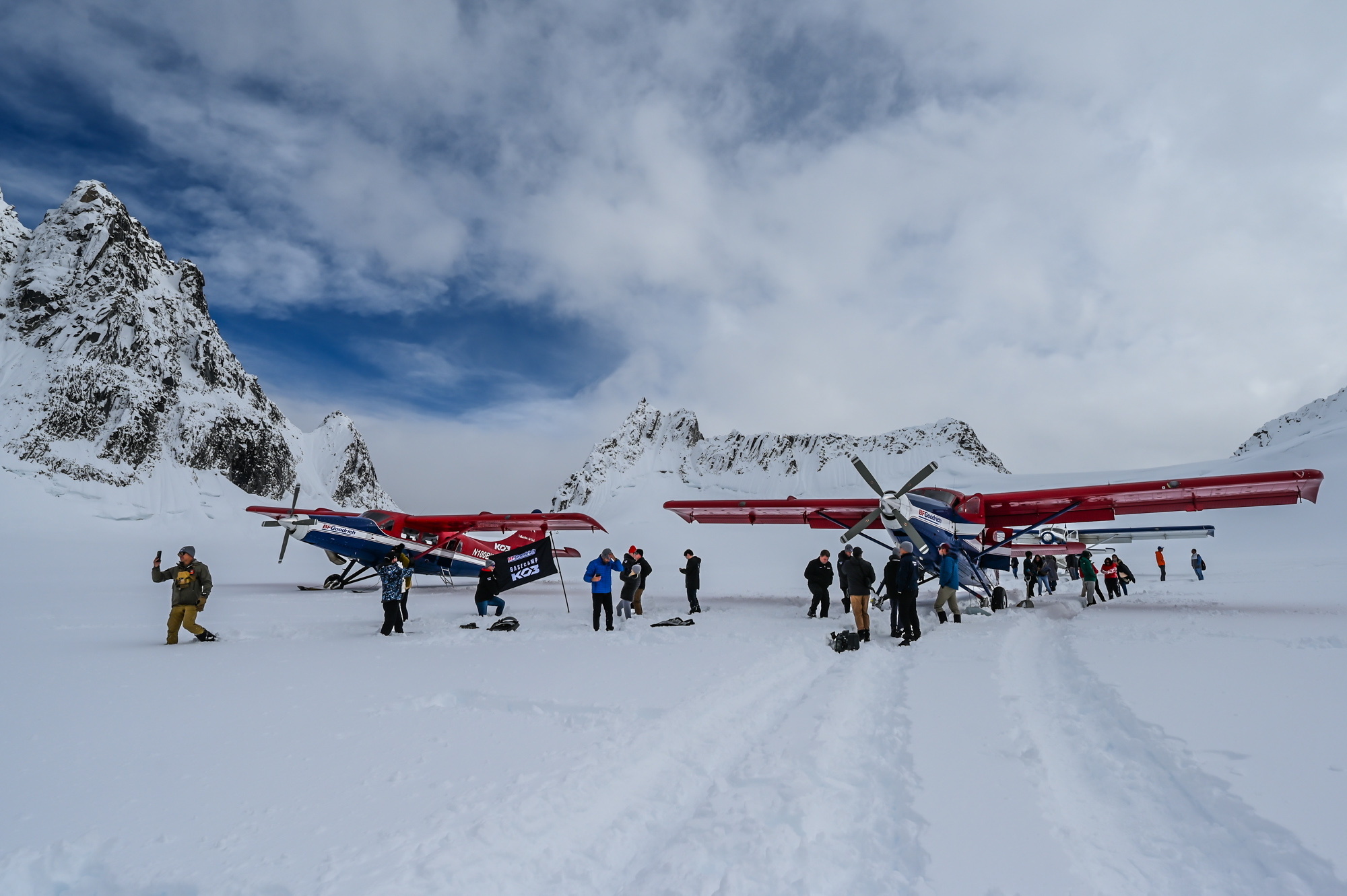
I saw 14 bald eagles in the span of 2 hours, flew around Denali in the clouds and landed on a mountain glacier, and experienced vibrant northern lights. Of course, I also spent a long day behind the wheel of a Tacoma off-road, rolling on KO3s through deep sloppy mud, across fast-flowing rocky creeks, over soft sand, and on many miles of sharp gravel.
In short: Alaska is always worth the visit. Not only does its natural, rugged beauty never ceases to amaze but it’s also a great place to test off-road tires. BFG has done it once again, creating a truly world-class all-terrain tire that handles a wide range of conditions with ease. Confidence-inspiring is what you want from a tire, both in terms of durability and performance, and the KO3 delivers.
- Price range: $263-594
- Available rim sizes: 16-18, 20,22
Pros
- True all-terrain traction
- Durable sidewalls
- Wet weather performance
- Iconic and aggressive good looks
- 3-Peak mountain snowflake rated
Cons
- Price
- Not light
BFG KO3 Review
For the off-road experience on the KO3s in Alaska, I was driving a Toyota Tacoma supplied by Alaska Overlander — which you can rent anytime. The truck had all the bolt-on accessories, so it was pretty heavy, and was mounted with BFG KO3 tires. The tires were aired down to 25 psi for our entire excursion, which also included over an hour of fast highway.
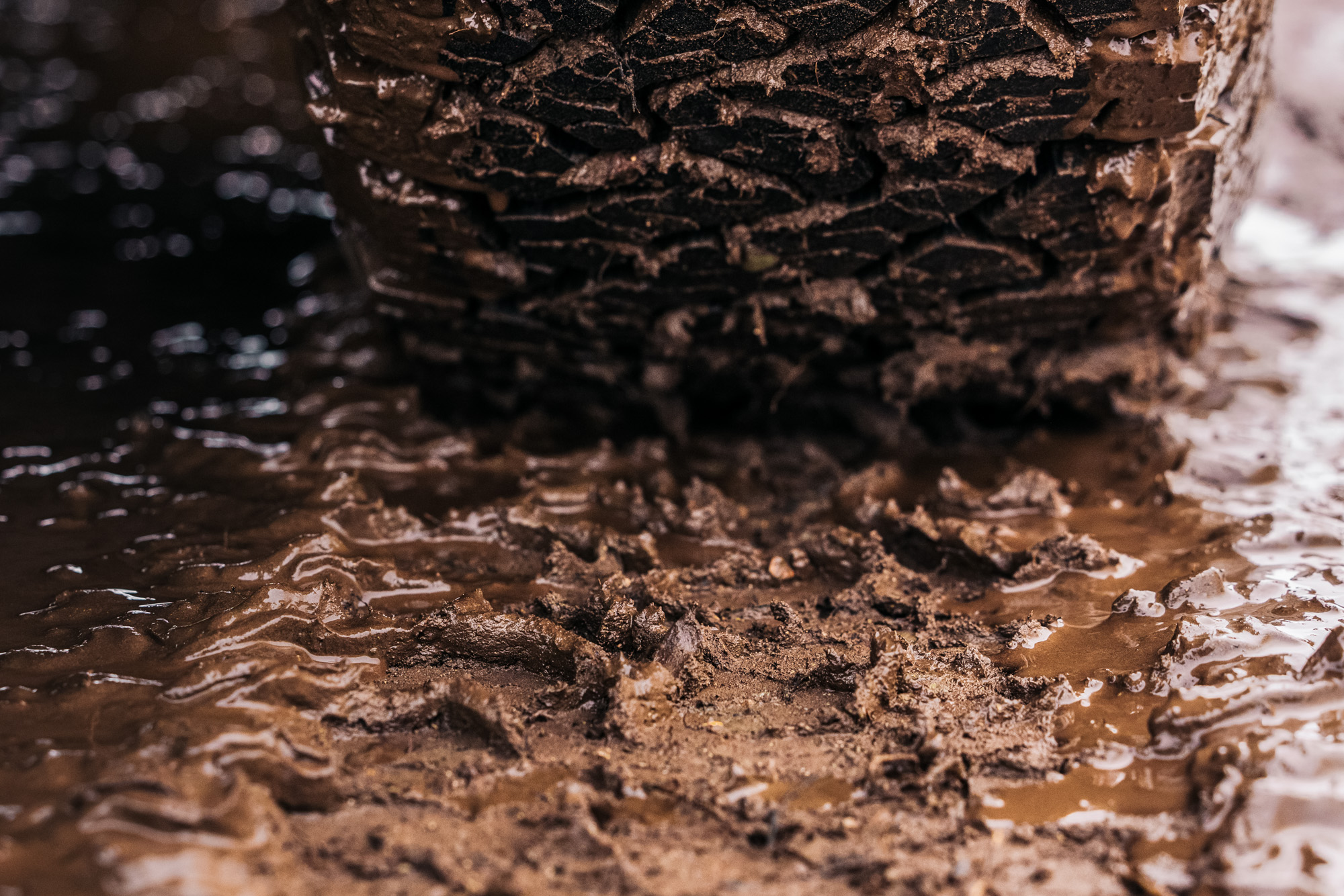
After some very wet highway time, we did some laps on a short section of very muddy trail. The sloppy conditions pushed the capabilities of the all-terrains, and was for sure the type of conditions you’d consider a mud-terrain tire for.
Next we did some laps around a small sandy area with big puddles and some short but super-steep loose hill climbs. These are the types of conditions in which you expect all-terrain tires to excel, and they did.
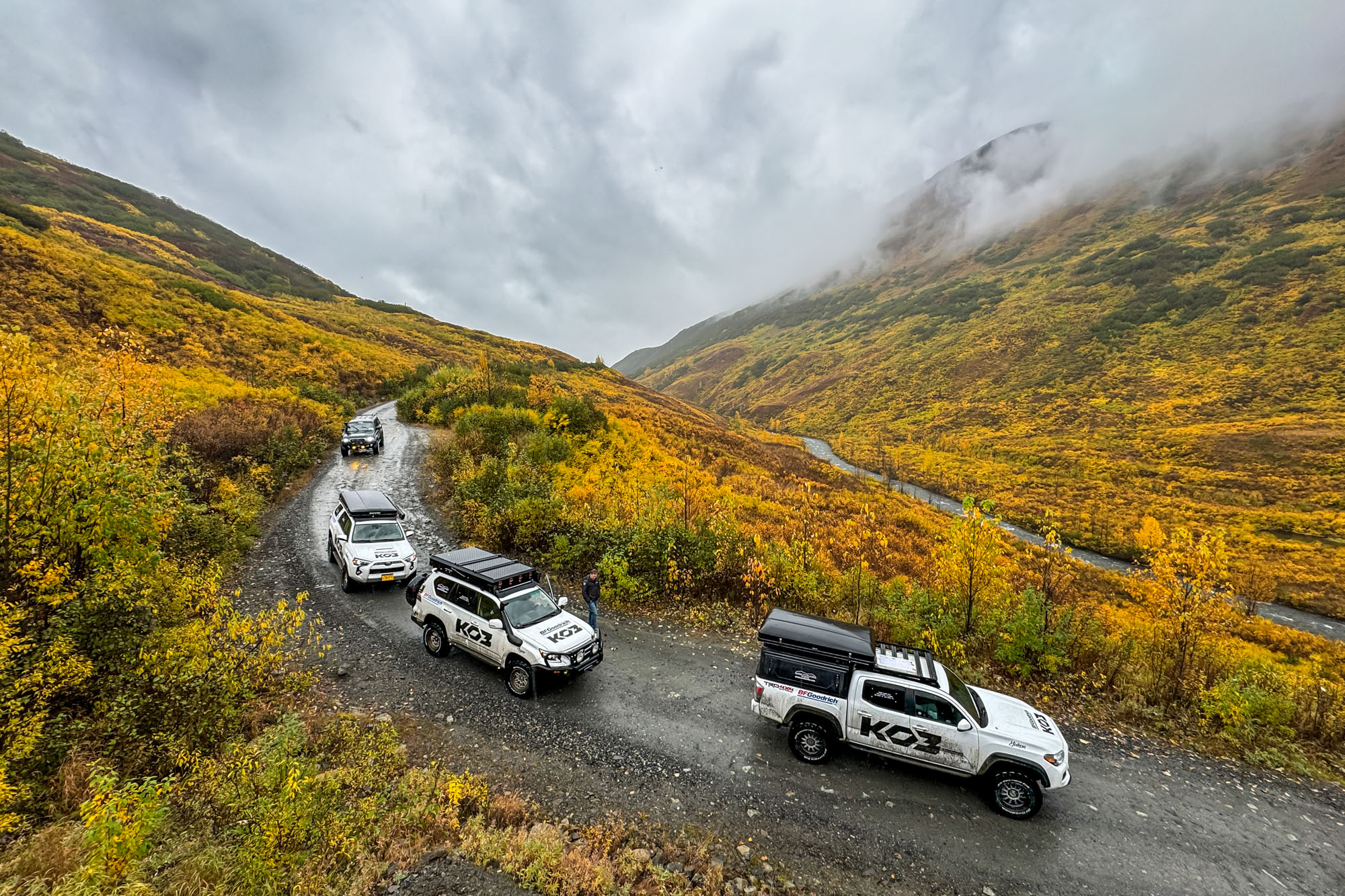
Much of the day was spent cruising down gravel shelf roads in the mountains at a wide range of speeds. The weather was nasty the entire day, and the many creek crossings got quite deep as the day went on.
Let me sum up this day of tire testing in a wide range of conditions. First, wet road performance was impressive. While not a mud-terrain, the KO3 is very good in sloppy conditions, as well as loose sand and dirt. Also, the tires have minimal rock throw on gravel roads, which makes for a much quieter ride and helps save the windshields of the other vehicles in your convoy.
BFGoodrich Off-Road Tire History
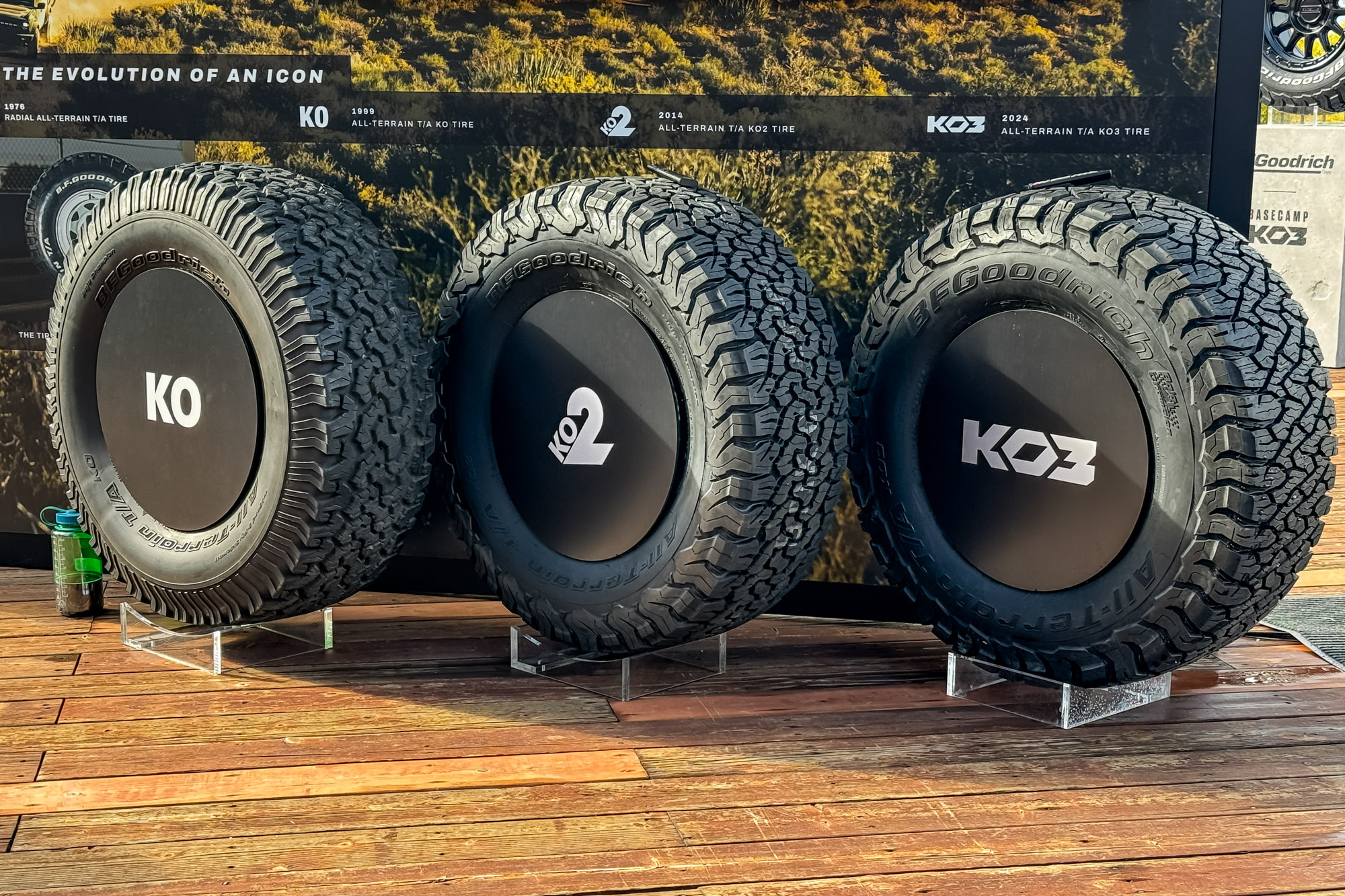
Before we go deeper into my experience and thoughts on the new KO3, let’s first have a quick look at the history of BFG off-road tires and some fun facts about them. The KO series is iconic at this point, and over 25 years old, but performance BFG off-road tires goes back much further.
- 1870: BFG started
- 1976: First AT at BFG (first radial AT)
- 1986: Radial AT T/A introduced (first Baja 1000 win for BFG)
- 1999: First T/A KO tire (first that worked well in snow)
- 2014: KO2 introduced (brought better mud handling with shoulder shape)
- 2024: KO3 introduced
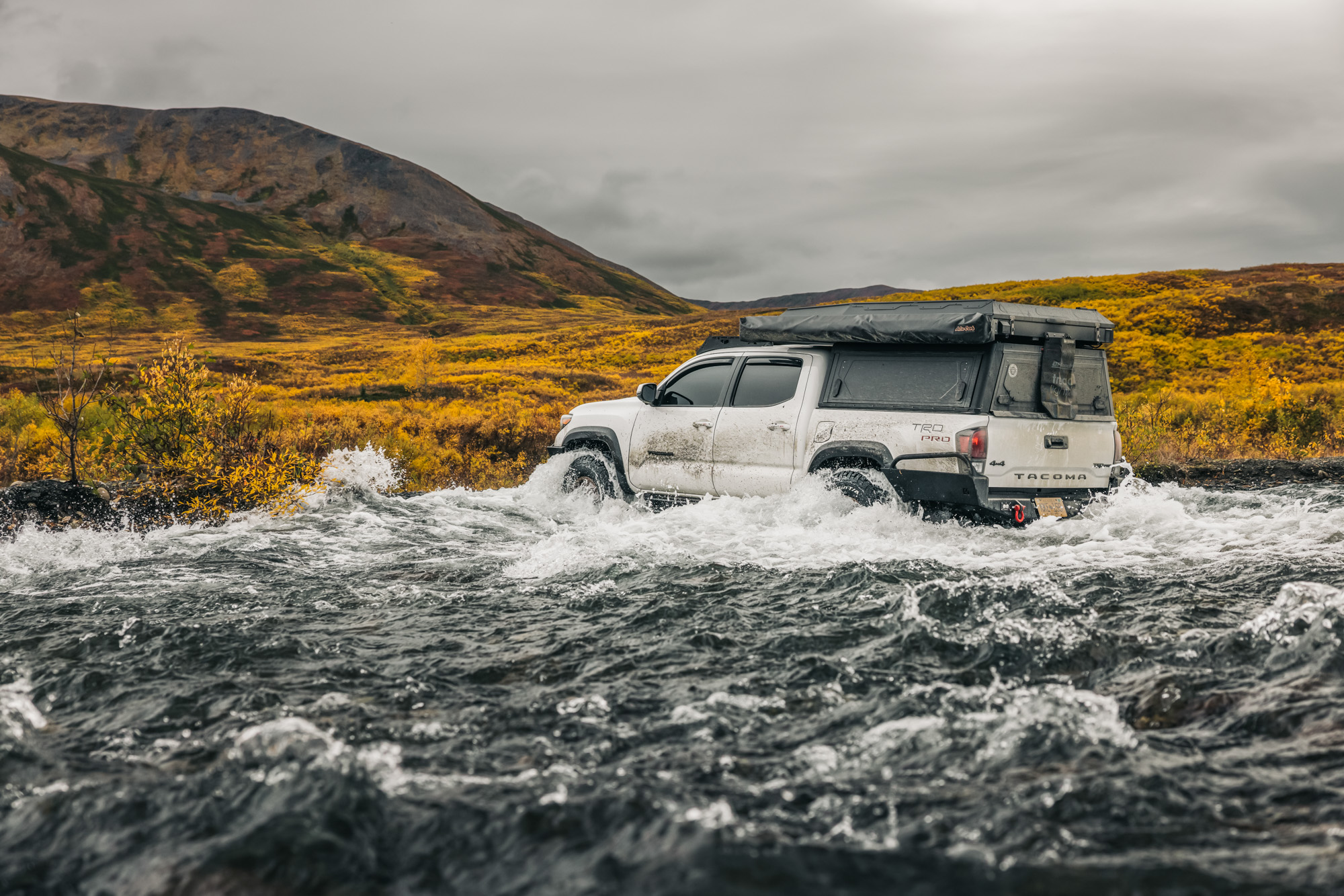
While KO originally stood for “Killer Off-Road,” lawyers quickly intervened, and these days KO stands for “key off-road.”
The dog-bone tread block design in BFG’s KO tires is super-iconic at this point, and regularly imitated by the competition.
BFG has used Baja as its test track since its early days of developing off-road tires. It won its first Baja 1000 race all the way back in 1986, and today has 35 Baja 500 and 33 Baja 1000 overall wins. The “Baja Champion” wording on the sidewalls of BFG tires — including the new KO3 — means the model has been used for a class win at a SCORE off-road race.
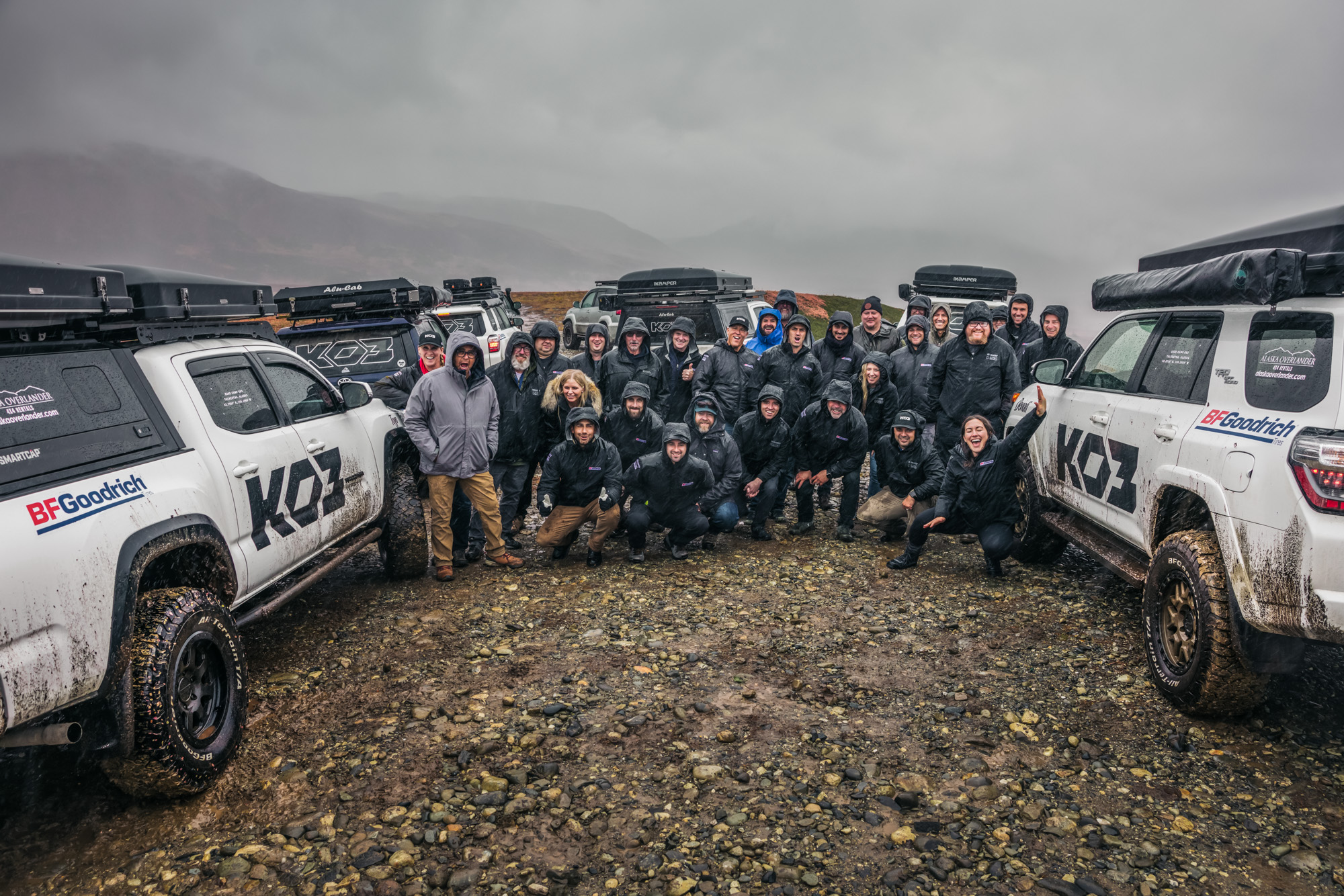
Iconic KO2 to New KO3
Now, let’s dive into the big differences between the KO2 and the new KO3. They look quite similar overall, which is a good thing, but there are some pretty noticeable differences, and maybe more importantly differences we can’t see.
First, you’ll notice that the KO3 has much bigger lettering on the sidewalls and more aggressive tread blocks that reach further down the sidewall. The iconic dog bone tread blocks are also larger, making for a less busy-looking tread design. The tread blocks are more dense at the center of the tire and more open at the edges.
The rest of the differences are hidden from the naked eye. Of course, there are new tire compounds used in different parts of the tire to complement the new construction and tread pattern.
BFG says the KO3 has 15% better wear resistance and 6% better rolling resistance than KO2. It also says there is a small improvement in snow performance, but longevity and chip resistance is why KO3 was created.

BFG KO3 Design
Now, let’s get into some of the standout features of the KO3 tires that we haven’t gotten to yet
The design brief for the tire went something along the lines of, “toughness, treadwear, traction.” BFG says they have achieved better wear, more durability, improved traction, and increased block stability.
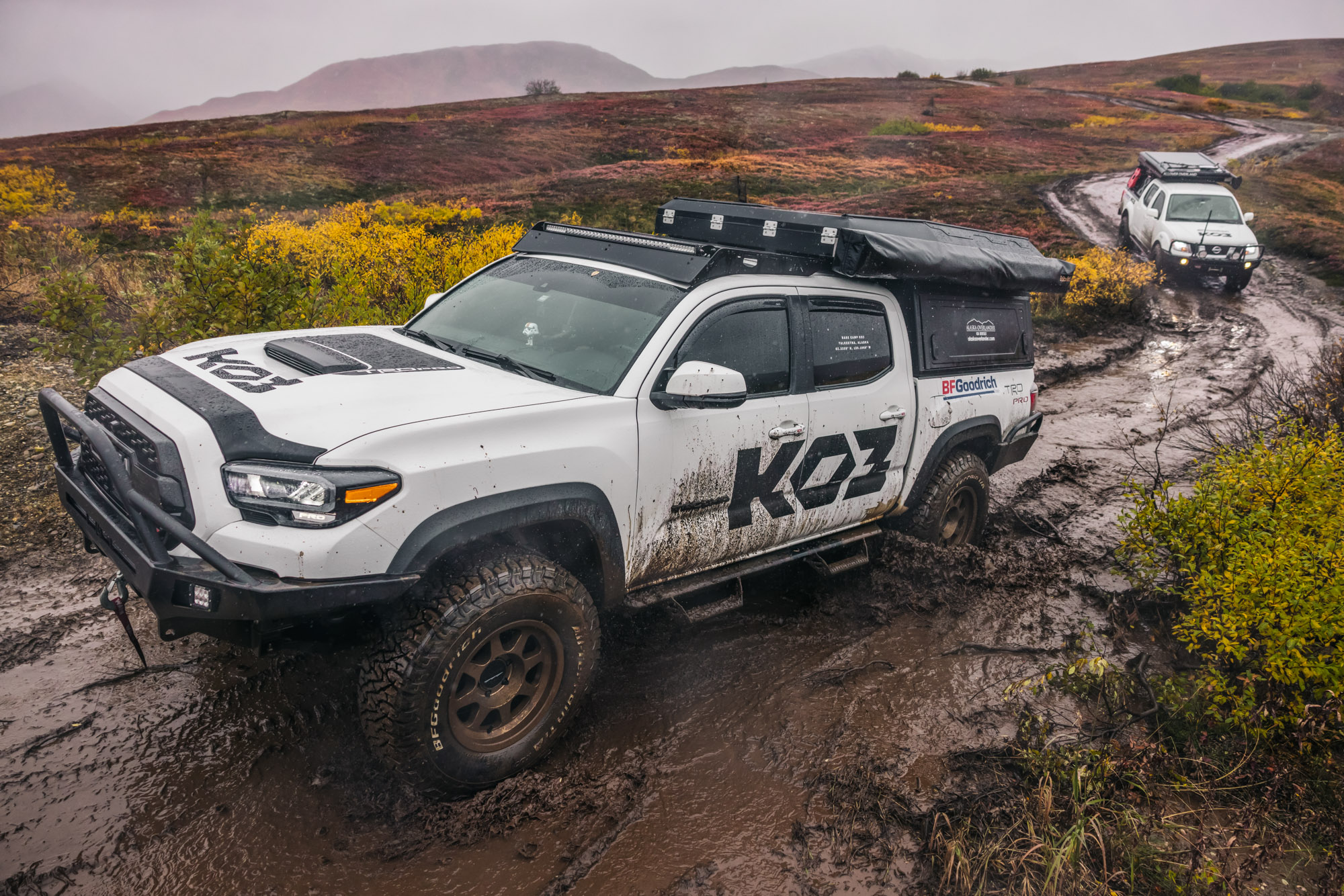
Modern trucks and SUVs have huge torque, and consumers expect longevity. A big focus of this next-generation KO AT tire is to handle those forces while still providing a longer-lasting tire. While the warranty on the tire stays at 50K miles, the wear resistance is said to be 15% better overall and 20% better on gravel.
I asked the engineers at BFG why the warranty wasn’t extended to reflect the improvement. They said they wanted to underpromise and overdeliver. While that sounds like a good marketing line to me, they also said they were concerned about new higher torque and heavy vehicles hitting the market, which is a totally valid concern. Look no further than the GMC Hummer EV SUV, which weighs nearly 9K pounds and has massive torque and horsepower, as an example of what they’re talking about.
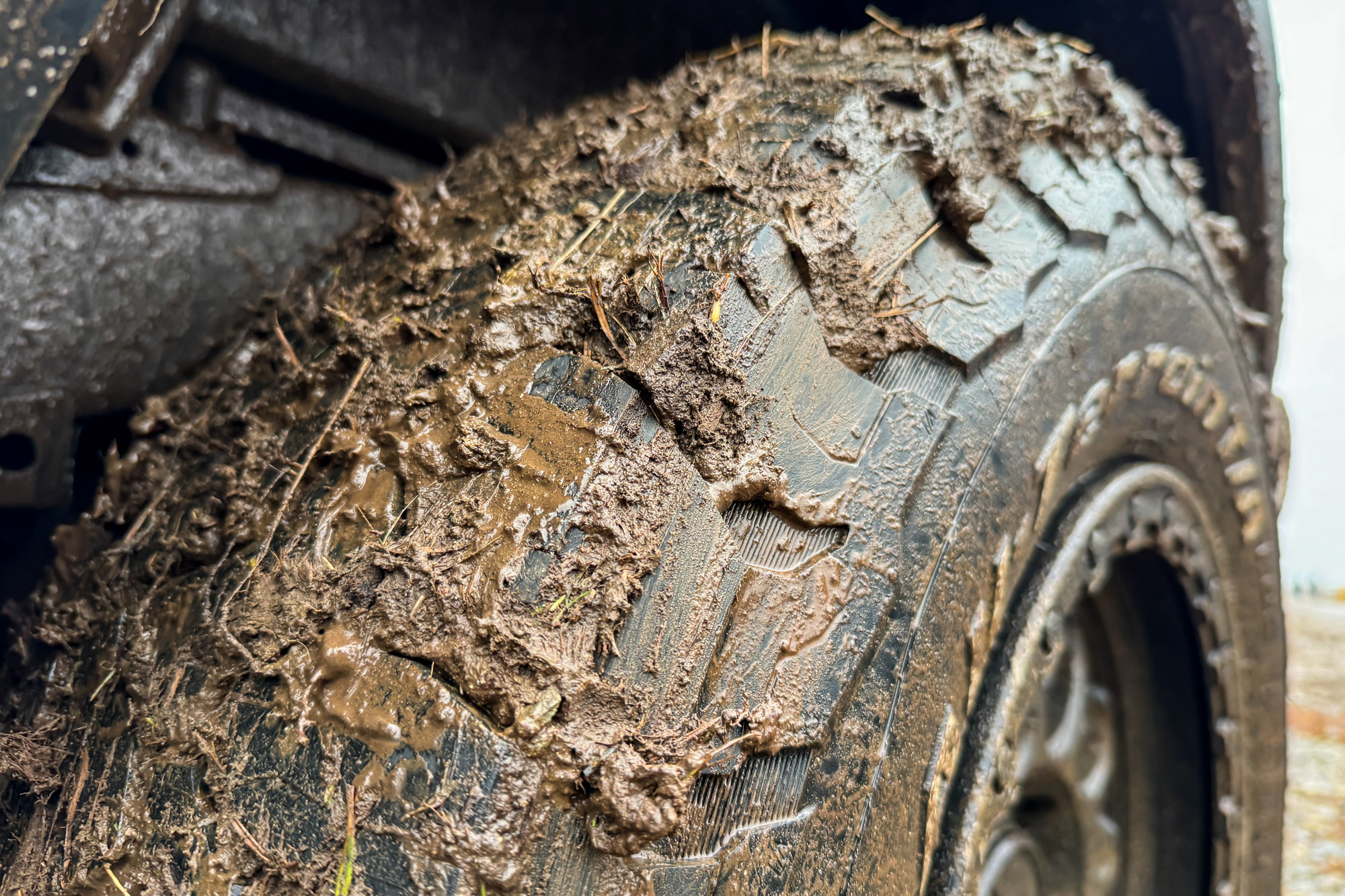
One of the features of the KO3 I really saw in action was the improved mud performance. With larger voids in the tread at the shoulders, which are wider at the edge of the tire, and improved mud-phobic bars, the tire quickly evacuates mud from the tread. As the mud-phobic bars flex over terrain, they break suction between the mud and the tire, pushing the mud out of the tire.
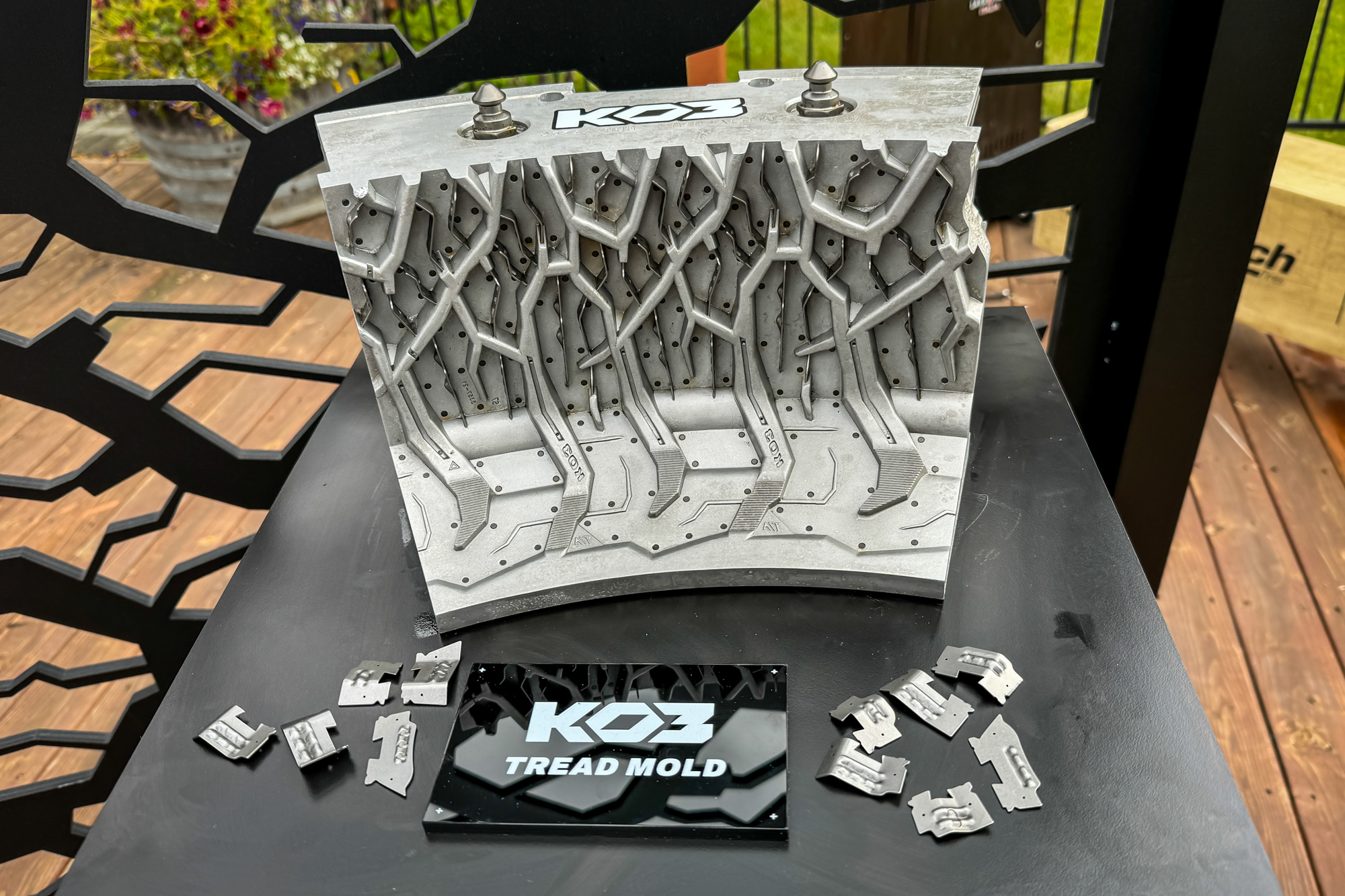
The BFG KO3 AT features full-depth 3-D sipes. This means the little slits in the tire are super-deep into the tread and narrower in the middle of waffle-style 3D design in the center of each sipe. This helps with tread block stability, as blocks touch faster when flexed while still keeping wet and snow traction.
While the rubber has been extended and tread design become more aggressive on the sidewalls of the tire, it’s the new tire compound being used in the KO3 that really makes the performance difference. The KO3 utilizes the same sidewall rubber found in the Baja T/A KR3 off-road race tire.
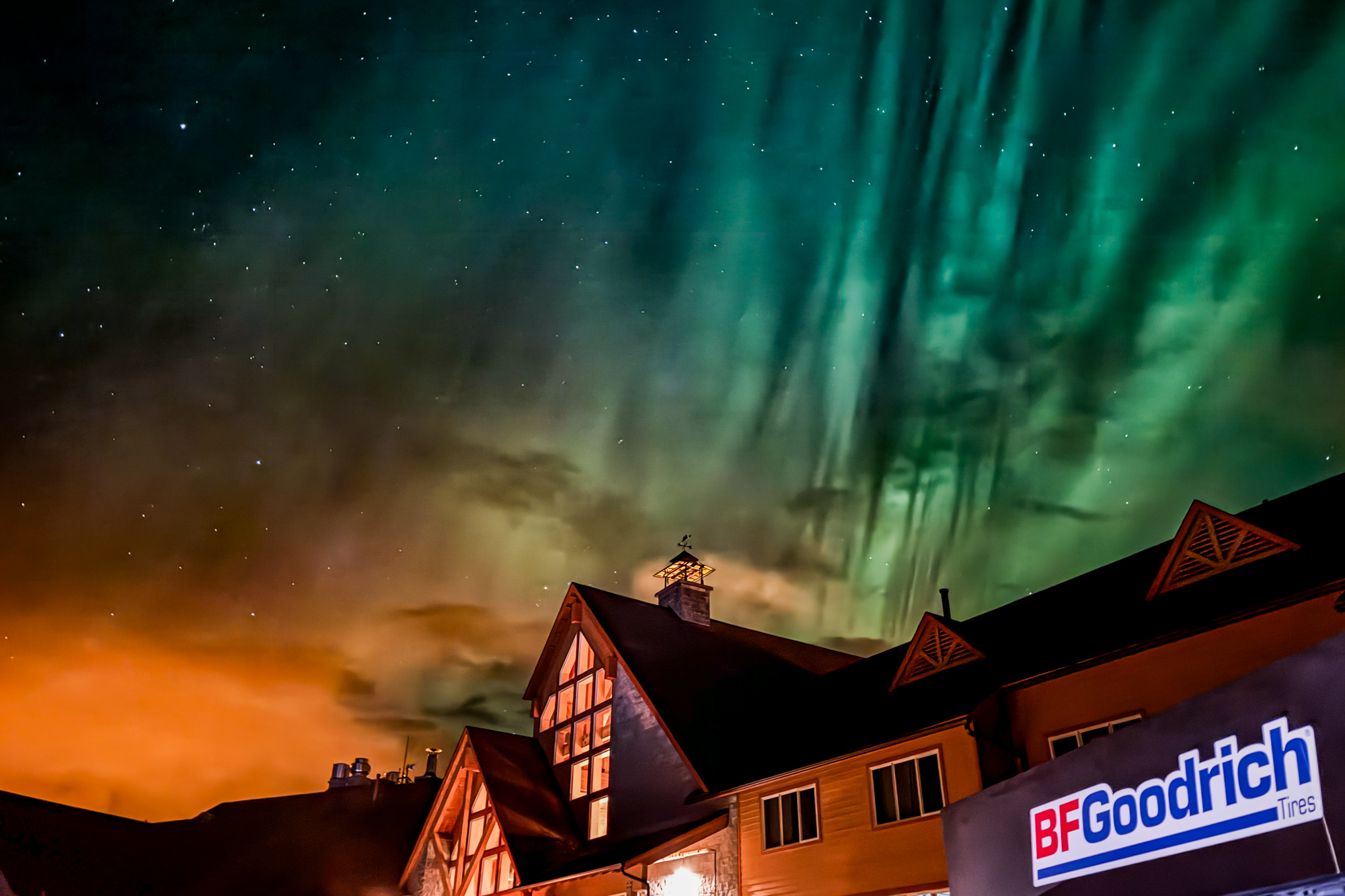
BFG KO3 Availability & Pricing
BFG sells its KO tires in 140+ countries worldwide. In countries like South Africa and Australia, gravel durability is super important, hence the focus on the chip and tear resistance of the KO3.
There are already 35 sizes of KO3 on the market this year. Fifty-two more are coming in 2025, and another 19 in 2026. There will be a KO3 for just about any off-road vehicle. For now, there are plenty of KO2 available, but they will be phased out as the new KO3 sizes hit the market.
The BFG KO3 isn’t inexpensive, as it is a premium tire that offers premium performance. As an example, a 35-inch KO3 (LT305/70R18) has an MSRP of $439.99 per tire.
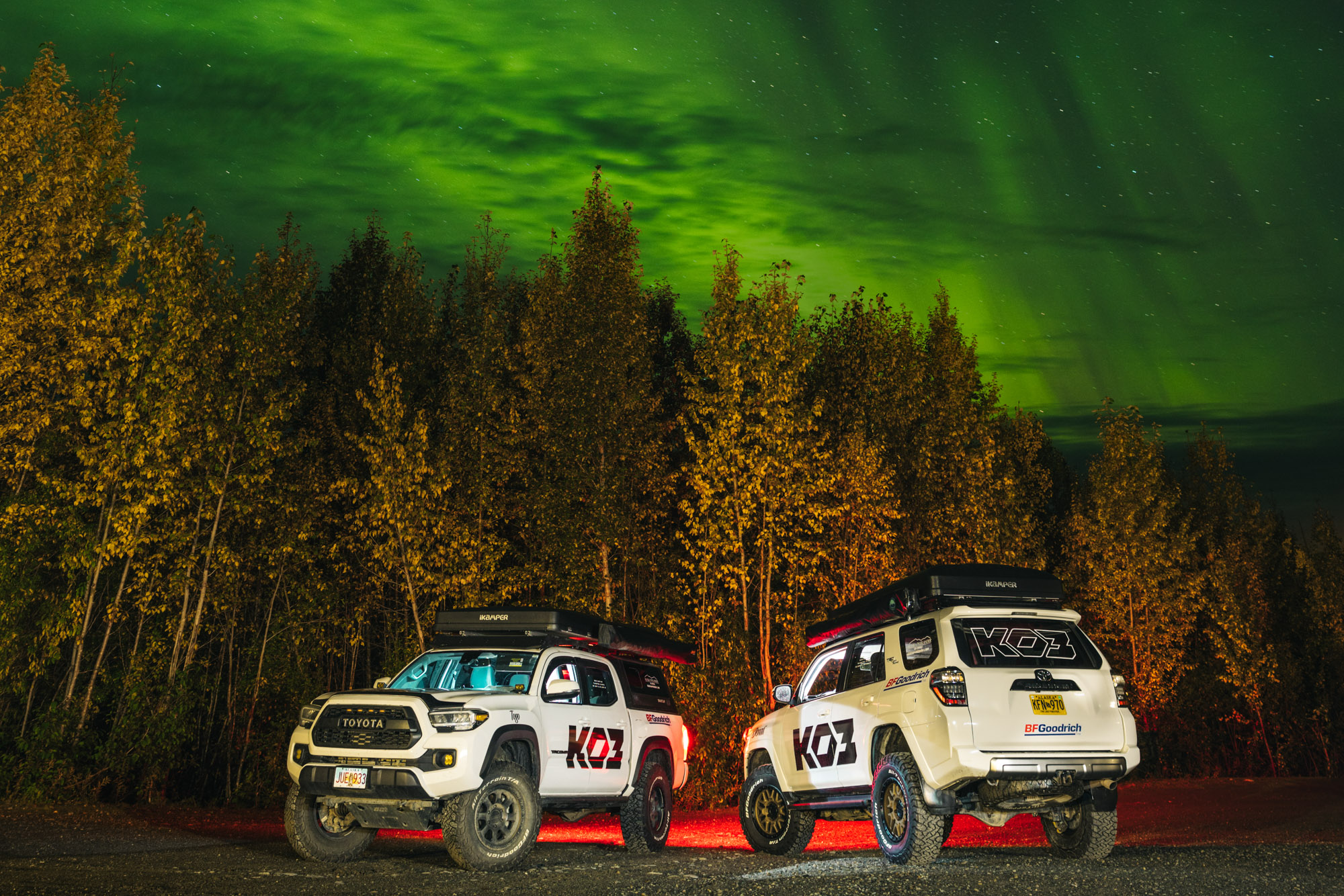
More Testing Needed
Of course, a single day on a set of tires isn’t going to paint the whole picture of how they perform in the real world and in all conditions. I, for one, am very interested to see how these do in snow and ice, as ATs are known to struggle in those conditions.
Because long-term testing is required, I’ve fitted my personal overland-built Lexus GX 460 with a set of 34-inch BFG KO3s. Expect a more in-depth review in early 2025 after some real-world testing over many miles and varying conditions.
